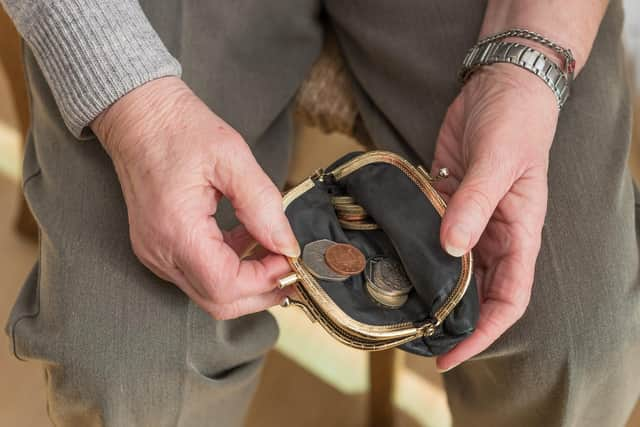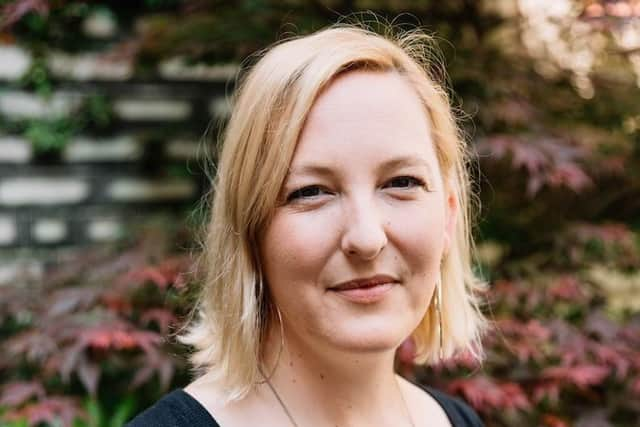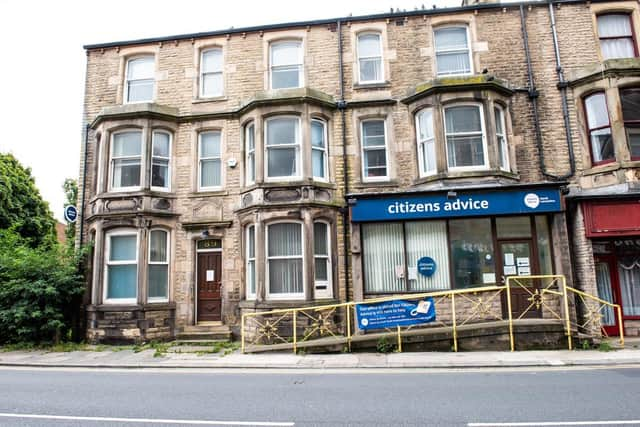Number of people on Universal Credit in Lancaster at highest level since December
and live on Freeview channel 276
The statistics come as Citizens Advice offices across Lancashire release research showing that Universal Credit is not enough to live off, and have called for the government to act urgently on benefit levels as living costs continue to soar.
Universal Credit is a monthly payment available to those on low incomes and those out of work.
Advertisement
Hide AdAdvertisement
Hide AdThe exact amount varies on your circumstances, but it is currently worth around £335 a month for a single person over 25.


According to provisional Department for Work and Pensions (DWP) data from April 14, 12,829 people were receiving Universal Credit in Lancaster – just under 14 per cent of the population.
Figures from February show that 45 per cent of households receiving Universal Credit in Lancaster were families with children, including 3,584 single parent households.
And according to figures from March, 42 per cent of people on Universal Credit in Lancaster were in employment.
Advertisement
Hide AdAdvertisement
Hide AdNew Citizens Advice research this week revealed benefit levels are now being paid at the lowest rate since the World War Two, relative to wages.


Evidence gathered included a client at the Morecambe branch whose disposable income for the month was less than her electricity bill - which left her with no money for food, gas and water bills, toiletries, travel or council tax.
"Universal Credit was not enough to live off in 2021, but now that prices are soaring, it's causing serious hardship and deep poverty in the communities that we serve," said Joanna Young, the report author, who is service development director for Citizens Advice North Lancashire.
"We are breaking unwelcome records across our services for the numbers of people coming to us with problems around benefits, or asking for help with food and fuel.
Advertisement
Hide AdAdvertisement
Hide Ad"The government must act to raise benefit payments to help those on the lowest incomes."


Universal Credit has come under scrutiny in recent months, as the rising cost of basic household goods and energy has driven some to call for the rate to be increased, or for it to be made more widely accessible.
On Monday, the chief secretary to treasury, Simon Clarke, ruled out reinstating the £20 a week uplift to the benefit, which was temporarily introduced during the pandemic.
The Joseph Rowntree Foundation, a charity tackling poverty in the UK, has criticised the Government for not increasing the benefit in line with inflation.
Advertisement
Hide AdAdvertisement
Hide AdA senior policy advisor at the charity, Iain Porter, said: “With inflation nearing double digits, benefits were only uprated by 3.1 per cent, their lowest in real terms in 40 years.”
“We already know of parents skipping meals so their children can eat, families using a single lightbulb to limit electricity use, and cutting back on showers to save water.”
Along with charities such as the Joseph Rowntree Foundation, the Child Poverty Action Group and the Trussell Trust, Citizens Advice are now calling on the government to act urgently to increase benefits, and keep increasing them in line with inflation, so that those on the lowest incomes can avoid destitution.
"One-off payments via the Household Support Fund may solve a short term problem, but the inadequacy of benefit payments is a much more serious, long term problem, especially for people who can't work due to ill health," Joanna added. "The government must take on board how serious the situation is and take action before winter comes."
Advertisement
Hide AdAdvertisement
Hide AdA spokesman for the DWP said: “Universal Credit provides a vital safety net to 5.6m people and we want everyone to get the support to which they’re entitled.
“We recognise the pressures on the cost of living and we are doing what we can to help, including spending £22 billion across the next financial year to support people with energy bills and cut fuel duty."
CASE STUDIES FROM CITIZENS ADVICE OFFICES IN LANCASTER AND MORECAMBE
Client L is 62 years old and owns her flat. She has had to give up work due to ill health and is living off Universal Credit and PIP. She went to Citizens Advice because her bills have gone up sharply and she can't pay them.Client S is a single parent who has been the victim of domestic violence and had to move house. Her new house doesn't have a cooker and she doesn't have enough to live off on Universal Credit and can't afford to buy one.Client H's energy provider went bust and client H has not had a bill for many months. She is very upset and worried about what will happen when she finally gets a bill and she can't plan or budget for the increases to come.Client A called because her bill has gone up by £140 per month and she can't pay it. She has sought help from British Gas who will help for one month, but she wanted to know what she's supposed to do after that - she can't afford such high bills and has three dependent children.Client B has mental health problems. His rent has just been increased and now his bills are going up, but he can't pay them because his benefits have only increased by 3.1%. This is making his mental health worse so he can't go back to work.Client C said: "I just can't get my money straight. My bills are spiralling out of control". He was referred to the local foodbank.